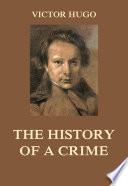
Il y a maintenant en France dans chaque village un flambeau allumé, le maître d'école, et une bouche qui souffle dessus, le curé.
Histoire d'un crime. Déposition d'un témoin (1877), Deuxième Journée. La lutte, ch. III: La barricade Saint-Antoine
T. H. Joyce and Arthur Locker (tr.), The History of a Crime: The Testimony of an Eye-Witness (1877), The Second Day, Chapter III, p. 120 http://books.google.com/books?id=CT1BkrtaFlIC&pg=PA120&dq=%22There+is+now,+in+France,%22
Translation: In every French village there is now a lighted torch, the schoolmaster; and a mouth trying to blow it out, the priest.
Huntington Smith (tr.), History of a Crime (1888), The Second Day, Chapter III, p. 187 http://books.google.com/books?id=idfUAAAAMAAJ&pg=PA187&dq=%22In+every+French+village+there+is+now+a+lighted+torch%22
Variants: There is in every village a torch: The schoolteacher/teacher. And an extinguisher: The priest/clergyman.
